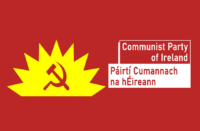The scandalous situation exposed by the RTE programme “Prime Time Investigates” about abuses in the Hyde and Seek creche is just another in a long line of catastrophic failures by private businesses.
And it’s not as if it was only in child care that the private sector has failed. In reality, when profit is the motive for setting up a business or service it invariably leads to the exploitation of workers or a lessening of the quality of products or services provided, or both.
Child care is the most recent failure exposed in the private care of our citizens. There has been a plethora of scandals, including the abuse of patients in private nursing homes and the incorrect reading and delays of test results.
Every type of business has had its scandals. The building industry has been inundated with scandals, from pyrite to the breach of fire and building regulations in the likes of Priory Hall and Longboat Quay, among many similar cases. Tobacco companies in the 1950s and 60s were aware that smoking could lead to cancer, but this knowledge was hidden from the public, and the companies continued to sell and promote their products.
Monsanto continues to produce and sell its notorious weedkiller Roundup. Volkswagen, along with most of the other leading car manufacturers, designed mechanisms to falsify information about emissions.
The commodification of the provision of homes has led to demands for excessive rents, which are then subsidised by state intervention; yet despite this, more than 10,000 citizens are living in emergency accommodation—not to mention up to 150 people in Dublin living in tents in parks.
These are a few examples of the abuses that we know about. There are probably thousands of others that we may never hear of. These scandals all arise in the pursuit of maximum profits, which is the one and only goal of private business. So long as this is so, these abuses will continue to happen with regularity.
Meanwhile the damage that business is doing also to the environment is almost at the point of no return. We need to look at doing things differently if humanity is to survive.
When the state made the decision to provide children’s allowances and other welfare payments to support citizens it should have been just that: all-embracing welfare, which would cherish all our people equally—not the Jekyll and Hyde of welfare to prop up the failures of capitalism. This would include state-owned creche facilities for all citizens’ children, universally accessible and free of charge.
Instead of the back-to-school allowance, a properly financed, universally available free education system at all levels would allow all our people to reach their full potential.
Eighty-three countries have declared housing a human right. Ireland needs to do the same and to build universally accessible public housing, with rents linked to income, instead of workers paying a mortgage for forty years to the banks, or rent to private landlords. The state should provide a housing service that would be a state asset and rid citizens of this burden, which in turn would allow citizens to spend most of their income during their life instead of using it to service debt.
Why are we sending our medical tests abroad to private institutions when there is enough demand to set up laboratories, run by the state, to do all this work? Instead the only thing that has been nationalised in recent years has been banking debt.
All the subsidies and concessions granted to citizens by the state—children’s allowance, family income supplement, back-to-school allowance, HAP, RAS, and the dole—are not paid out to support the citizen; quite the opposite, in fact: they are done to prop up capitalism and allow it to function. It also quells dissent by making life a little easier and more bearable for the many citizens who are failed by capitalism.
We need to transform society: to nationalise production, use the wealth created to give citizens real, comprehensive, fully funded services, universally available to all our people—housing, health, education, child care, care for our elderly—with the goal of serving the people, not those profiteering from the necessities of life.
There is no such thing as a nicer, fairer capitalism. It cannot be “reformed” or tweaked: it must be smashed.






